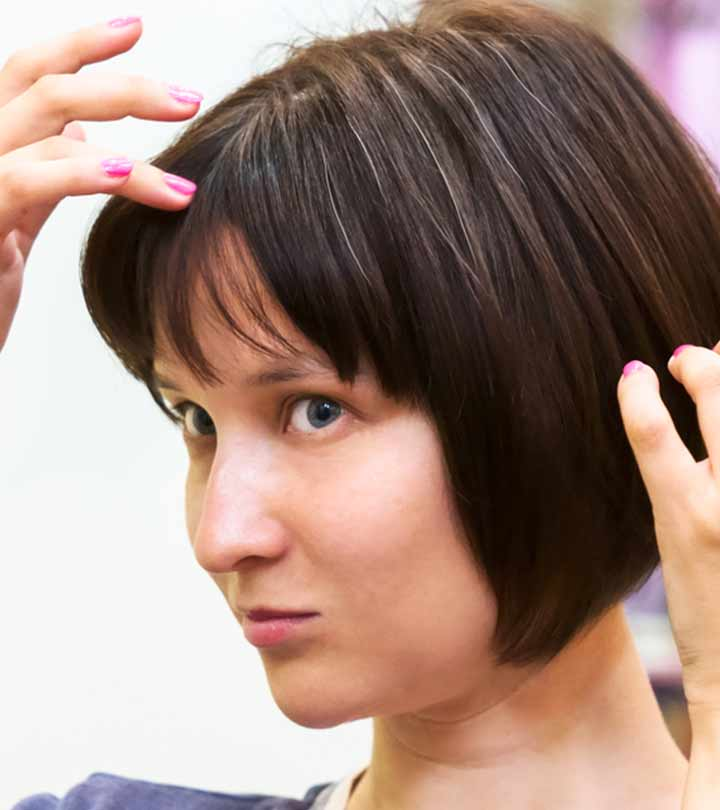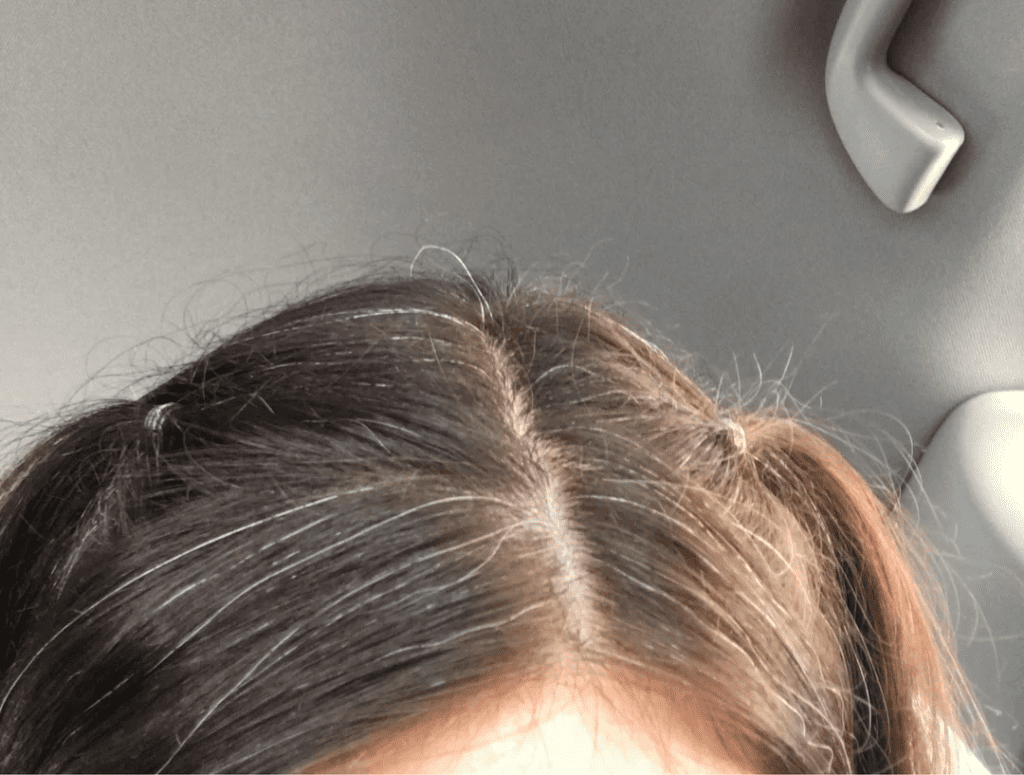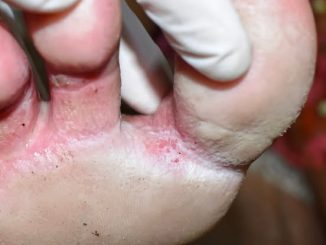Noticing grey hairs popping up way before you expected? Premature greying can be frustrating, and while it’s typically associated with aging, some young adults find themselves graying earlier than most. Interestingly, according to one UK-based doctor, the culprit may not just be age—it could actually be a sign of a mineral deficiency. If you’ve been noticing premature greys, lethargy, or symptoms of anemia, you might want to consider your copper intake. This article will explore how copper deficiency can impact hair pigmentation, why it’s crucial for our body, and what you can do if you think your copper levels are low.
The Role of Copper in the Body

Copper might sound more like something you’d find in plumbing than in your body, but it’s an essential trace mineral required for several vital functions. According to the NHS, adults need around 1.2 mg of copper per day, and it’s found in foods like nuts, shellfish, and organ meats.
- Energy Metabolism: Copper plays a crucial role in converting nutrients into usable energy, helping to maintain stamina and reduce fatigue.
- Collagen Production: Copper supports collagen synthesis, keeping skin and connective tissues healthy.
- Iron Absorption: Copper assists in iron absorption, helping prevent iron deficiency anemia. This makes it essential for those who suffer from chronic low iron levels.
So, while copper might not get the same attention as calcium or vitamin D, it’s a mineral that our bodies rely on to function optimally, including keeping our hair from turning grey too soon.
How Copper Deficiency Can Lead to Premature Grey Hair
So, what does copper have to do with hair color? It turns out, quite a lot. Copper is essential for melanin production, the pigment responsible for the color in our hair, skin, and eyes. If you’re deficient in copper, your body may struggle to produce adequate melanin, leading to a loss of pigment in your hair—and that means grey strands.
@dra_says If your always tired, anaemic despite iron replacement or getting grey hairs early. Then getting your copper levels checked is a good option. @thehamptonshospital Educational purposes only. #anaemia #anaemic #lowiron #lowcopper #copperdeficiency #copperdeficiencysymptoms #greyhair #whitehairproblem #whitehaircause #tiredallthetime #anemic #doctor #privatedoctor #privategp #anaemiaproblems #anemiacheck #lowbloodcount #lowhaemoglobin #hblow #irondeficiency #irondeficiencyanemia #irondeficiencycheck ♬ original sound – Dr Ahmed
- Melanin and Hair Pigmentation: Melanin gives hair its natural color. When melanin production slows, hair begins to lose color, leading to greying. Copper’s role in this process makes it crucial for maintaining vibrant hair color, especially in younger people.
- Evidence of a Connection: While research into copper deficiency and grey hair is ongoing, several studies have shown a link between low copper levels and premature greying. That means that if your hair is greying earlier than expected, a lack of copper could be a contributing factor.
It’s worth noting that other factors, such as genetics and stress, also play a role in when and how we grey. But if you’re experiencing grey hairs and fatigue, it might be worth exploring your copper intake with a healthcare provider.
Common Signs of Copper Deficiency
Beyond premature greying, copper deficiency can cause several other symptoms. Since copper is involved in multiple bodily functions, a shortage of this mineral can affect various aspects of your health. Some common signs of copper deficiency include:
- Fatigue and Lethargy: Because copper helps with energy metabolism, low levels can lead to feelings of exhaustion, even if you’re well-rested.
- Symptoms of Anemia: Copper deficiency can lead to poor iron absorption, resulting in symptoms similar to anemia, such as weakness, dizziness, and shortness of breath.
- Weak Immune System: Copper is also vital for immune health, so a deficiency might lead to frequent colds or infections.
- Brittle Bones and Osteoporosis: Copper plays a role in bone health, and low levels over time may contribute to bone fragility.

If you’re experiencing a combination of these symptoms, it might be worth speaking with your doctor to see if a copper deficiency could be the cause.
Is Copper Deficiency Causing Your Grey Hair? What to Do Next
If you suspect that low copper levels could be causing your premature grey hairs, the first step is to seek advice from a healthcare provider. Dr. Ahmed, the UK-based GP who highlighted the connection between copper and grey hair, emphasizes the importance of getting your copper levels checked before jumping to supplementation.
- Don’t Self-Diagnose or Self-Supplement: Taking copper supplements without medical guidance can lead to an overdose, which can have toxic effects. Copper toxicity can cause nausea, abdominal pain, and even liver damage.
- Get Your Levels Tested: A simple blood test can reveal whether you’re deficient in copper. If your levels are low, your doctor can guide you on safe ways to increase your intake.
Remember, grey hair can also be genetic, so a little early greying doesn’t always mean a deficiency. Testing can confirm if low copper is a factor or if other lifestyle factors are involved.
How to Naturally Boost Your Copper Intake

If your doctor confirms a mild copper deficiency, dietary adjustments can often help bring your levels up. Fortunately, many nutritious foods are rich in copper and are easy to incorporate into your diet. Here are some excellent sources of copper:
- Shellfish: Oysters, crab, and lobster are high in copper, with oysters being particularly potent.
- Nuts and Seeds: Foods like almonds, sunflower seeds, and sesame seeds provide a good copper boost.
- Organ Meats: Liver, especially beef liver, is packed with copper. However, it’s high in cholesterol, so consume it in moderation.
- Dark Chocolate and Cacao: Interestingly, dark chocolate and raw cacao powder contain copper, and Dr. Ahmed suggests that one tablespoon of cacao powder daily could fulfill your copper needs.
By incorporating these copper-rich foods into your diet, you can naturally improve your levels and potentially slow down the appearance of premature grey hairs.
Beware of Overloading on Copper Supplements
While it might be tempting to start taking copper supplements immediately, it’s essential to do so cautiously. Copper is a trace mineral, meaning that while it’s necessary for health, the body requires it in small amounts. Over-supplementation can lead to copper toxicity, which may cause more harm than good.
- Consult a Healthcare Provider: Always speak to a doctor before starting any new supplement, particularly minerals. Excess copper can have adverse effects on organs, especially the liver.
- Try Natural Supplements First: For those who need a slight boost, natural sources like cacao powder are excellent options. Cacao offers other health benefits, such as fiber, antioxidants, and magnesium, making it a multi-benefit addition to your diet.
A balanced approach ensures you get the benefits of copper without risking toxicity.
Grey Hair and Genetics: When Diet Can’t Help

While copper deficiency can contribute to early greying, it’s not the sole factor. Genetics play a significant role in determining when and how much we grey. If premature grey hair runs in your family, dietary changes may only have a limited effect.
Some individuals are genetically predisposed to lose hair pigmentation earlier in life, and no amount of copper or other nutrient adjustments will stop this process. In these cases, lifestyle changes and dietary improvements may improve overall health but won’t entirely prevent greying.
Conclusion: Finding Balance in Managing Premature Grey Hair
While early grey hairs can be surprising and even frustrating, they might also be a signal to pay closer attention to certain nutrients, like copper. This essential mineral plays a critical role in hair pigmentation, so addressing a deficiency could help slow down the greying process. However, balance is key—getting your levels tested before supplementing ensures you don’t risk copper toxicity.
In the end, managing premature grey hair might involve a combination of dietary adjustments, lifestyle choices, and acceptance of genetic factors. If you’re noticing those early greys, consult a healthcare professional to explore whether low copper levels might be at play. And remember, taking small, informed steps can help you approach the changes in your hair—and overall health—with confidence.


